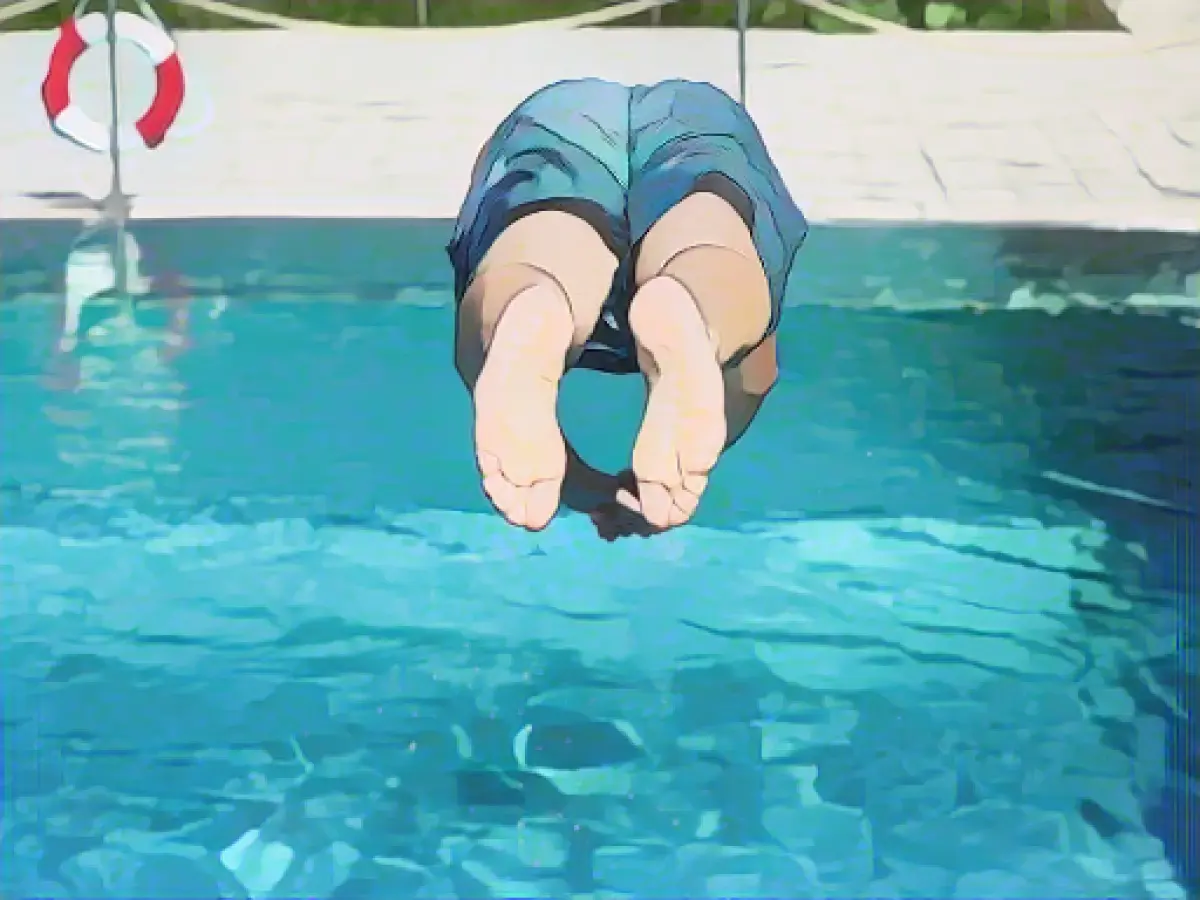DLRG is looking for lifeguards for the 2024 swimming season
Lifeguards sorely missed: The coronavirus pandemic in particular, but also the restricted opening hours of many swimming pools, have had a massive impact on the training of lifeguards. During the pandemic, an entire cohort of lifeguards could not be trained, according to the German Life Saving Association in Bad Nenndorf. "We are looking for new lifeguards for the 2024 swimming season," said DLRG President Ute Vogt. Especially as, according to a new survey, 83 percent of respondents felt safer in the water when lifeguards were present.
According to the DLRG, the market research institute Mente>Factum surveyed a total of 996 people between the ages of 14 and 60 online from October 9 to 16 for the representative study commissioned by R+V insurance. According to the survey, 74 percent of respondents would like to see more lifeguards at swimming spots. "Although the DLRG has not had to accept a decline in the number of active members, the demands on water rescue and our work in civil protection have increased," said Vogt. Swimming pools and schools have also benefited from higher training numbers.
According to the DLRG, the water rescuers supervise bathing in over 1,300 open waters across Germany every year - including many beaches on the North and Baltic Seas. The lifeguards also support the staff in almost as many swimming pools, especially in the outdoor pool season. There was a constant lack of staff, which meant that pools had to shorten their opening hours or remain closed.
This was also due to the fact that significantly less training was available during the pandemic: "We need to keep catching up," said Vogt. "Autumn and winter are training time. We are now laying the foundations for a safe swimming season next year."
This should help combat the growing risk of swimming accidents - given the fact that the number of safe swimmers is falling. According to a Forsa survey conducted in 2022 on behalf of the DLRG, the proportion of non-swimmers among six to ten-year-olds had doubled to 20 percent compared to 2017. The DLRG assumes that around 60% of children are not confident swimmers by the end of fourth grade.
During their free time, children can greatly benefit from the presence of lifeguards at swimming spots, as the survey suggests that 83% of respondents feel safer in the water with lifeguards present. With the shortage of lifeguards due to the pandemic and increased demands on their work, the DLRG is actively seeking new lifeguards for the 2024 swimming season, providing an opportunity for individuals to engage in swimming-related leisure activities while ensuring safety for others.
Source: www.dpa.com








